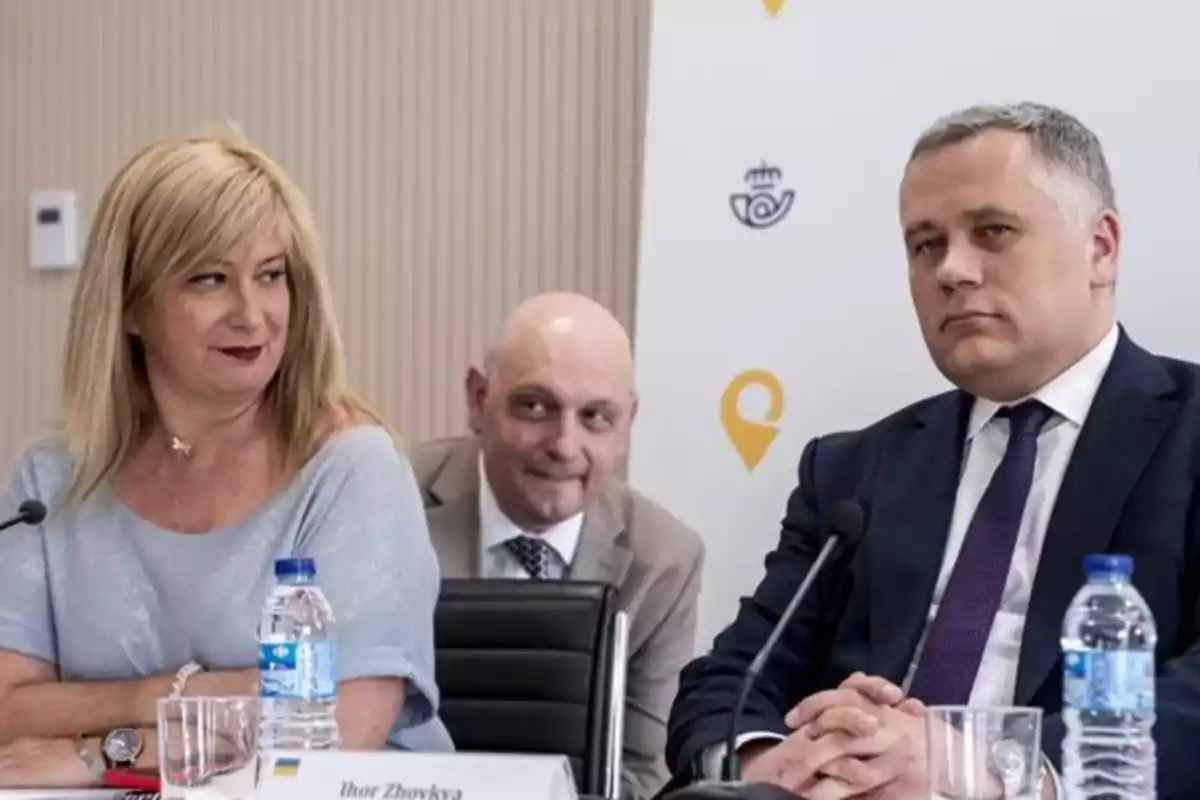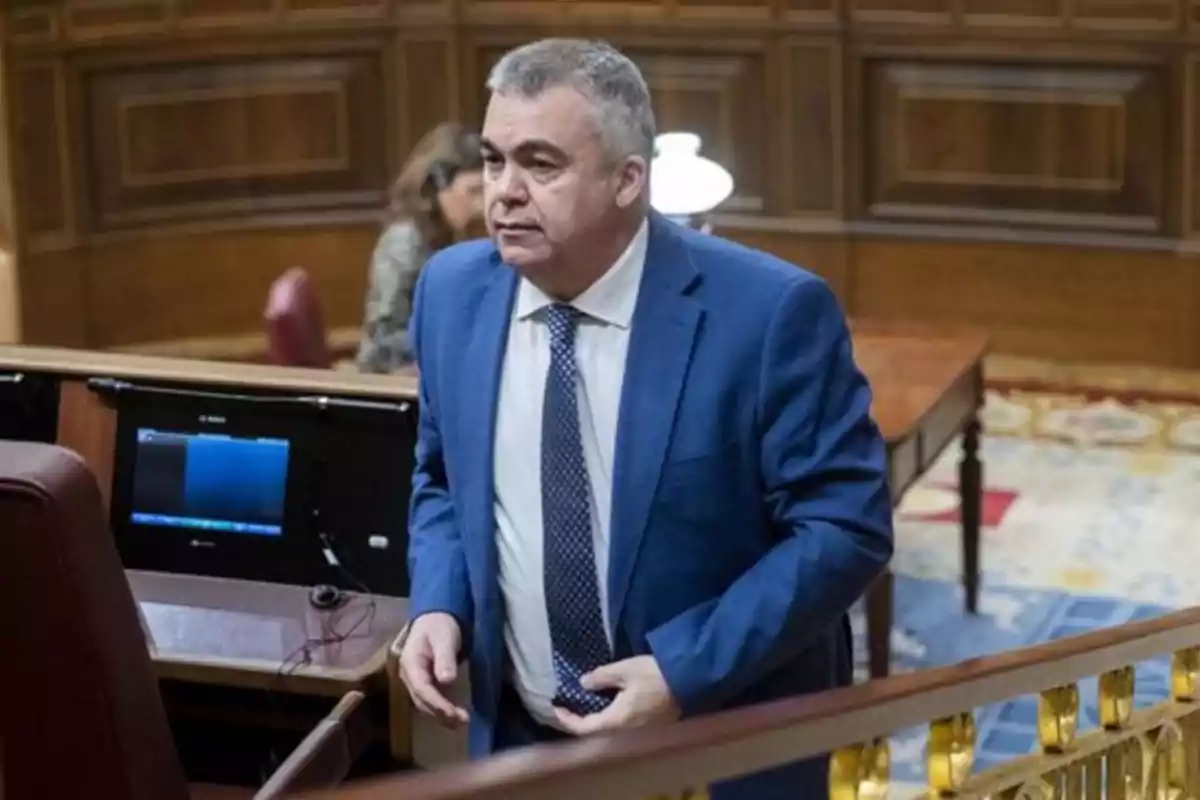
La Moncloa denounces the sewers while it still hasn't clarified its connection to Leire Díez.
The PSOE is once again accused of using the underworld, just as happened when Felipe González was in power
The Spanish political scene has been shaken by a series of recordings that once again bring the "sewers of the State" to the forefront. The controversy centers on socialist activist Leire Díez and businessman Javier Pérez Dolset. Both reportedly sought information about members of the Civil Guard and prosecutors linked to cases that have affected President Pedro Sánchez's inner circle.
The Government presents itself as a victim of an alleged "judicial, police, media, and political front." It claims to be suffering a "soft coup d'état." "There's a table in Madrid made up of journalists, judges, police officers, members of the Ibex 35, and PP that's working to put all this together," says a voice from the government circle quoted by El País.
Nineties
The opposition believes that PSOE is once again using the sewers of the State as a defensive tool. It wouldn't be the first time. In the 1990s, during the final stages of felipismo, the party already resorted to opaque structures within the state apparatus. It did so to try to contain growing judicial and media pressure. That pressure was marked by corruption scandals and the State's involvement in the dirty war against ETA. The Executive engaged in state terrorism through the GAL.
That period, which ended with PSOE's electoral defeat in 1996, was marked by a climate of political and institutional breakdown. Meanwhile, senior Government officials were being targeted by the Justice system. Among them were former Interior Minister José Barrionuevo and his number two, Rafael Vera.
During that period, unofficial mechanisms emerged to obtain information, protect allies, and influence sensitive judicial processes. It was then that the term "sewers of the State" began to gain traction in public debate.
Loss Of Control Of The Narrative
The Government's complaint comes after a very complicated month in which it has lost control of the narrative. The blackout, the WhatsApp messages from José Luis Ábalos, and the video of Leire Díez have made things difficult for it.

Rather than talking about a deliberate strategy by the current Government to create or control these parallel structures, it seems more accurate to point to the use of some of their members. The Government, facing an especially complicated legislative term, could be using them while denouncing them.
However, if collusion between a figure as compromised as Leire Díez and socialist Organization Secretary Santos Cerdán is proven, PSOE's presumption of innocence regarding the underworld would be shattered. It would place the party in a very delicate situation before public opinion.
Victims Or Actors On A Tainted Board?
Part of the opposition accuses the Executive of playing both sides. According to them, it denounces the existence of the sewers while supposedly benefiting from certain opaque mechanisms to protect itself. What does seem clear is that the victimization narrative, far from being new, refers back to political strategies of the past. Already in 1993, in a different context but with similar tensions, PSOE used the discourse of the "threatened State." It did so to unite its base. Also to defend the legitimacy of its decisions against what was then defined as an offensive by the "factual powers," which possibly existed, but didn't play much dirtier games than the less presentable allies of felipismo.
The strategy isn't exclusive to PSOE: it's common for governments, of any stripe, to resort to a narrative of external siege when they feel challenged. However, it's important to distinguish between legitimate institutional defense against dark maneuvers and a possible self-serving use of the narrative to divert attention from their own mistakes.
Establishment
Growing distrust toward the media and economic institutions adds another layer to this web. Some leaks point to a certain collusion between actors in the police sector and the opposition bloc. Although there is no clear evidence of coordination, there is a widespread perception that certain sectors of police and judicial power influence, directly or indirectly, the media climate.
That doesn't necessarily mean that an organized conspiracy exists. Its existence wouldn't be surprising. It should be remembered that the courts have proven that Podemos and the leaders of the procés suffered a dirty war at the hands of the sewers.
Regain The Narrative
The Executive is trying to regain the initiative and control the narrative, especially with a view to a new political cycle. Some interpret its latest moves as a "rescue" campaign, alluding to a defensive strategy to shield itself from future leaks or judicial processes. Others see it as legitimate defense against destabilization attempts. PSOE's stance could be an attempt to keep its reputation among "its own" to cover up its own mistakes.

It's true that PSOE's allies say that the Government, if it wants, now has the opportunity to show that its complaints are more than just a defensive maneuver. If it truly wants to break with the sewers, it will have to be brave and accept the costs of a thorough cleanup.
PSOE Points To PP
Socialist sources recall that Partido Popular hasn't been exempt from accusations regarding the use of the sewers of the State. During Mariano Rajoy's governments, especially between 2013 and 2017, multiple parallel operations were uncovered that pointed to the use of the police and media apparatus for political purposes. The main targets of that dirty war were Podemos and Catalan separatism.
One of the most emblematic cases was that of Commissioner José Manuel Villarejo. His involvement in designing disinformation campaigns, espionage, and compromising leaks was judicially recognized. Through reports without legal basis, undercover operations, and collusion with sympathetic media, strategies were orchestrated to erode the credibility of the Government's political adversaries.
Podemos, then on the rise electorally, was the subject of fabricated reports such as the so-called "PISA Report," which alleged illegal financing from Iran or Venezuela. That report was leaked to the press without a signature or official origin, and was never admitted as evidence in court. Despite its lack of validity, it served its purpose: to undermine the party's public reputation at a decisive moment.
Meanwhile, the Catalan procés was also addressed from these informal structures. Non-judicialized police reports circulated in newsrooms with the aim of linking pro-separatist leaders to economic crimes, drug trafficking, or suspicious international connections. Some of these leaks were later disproved or shelved. But the media damage was already done.
More posts: